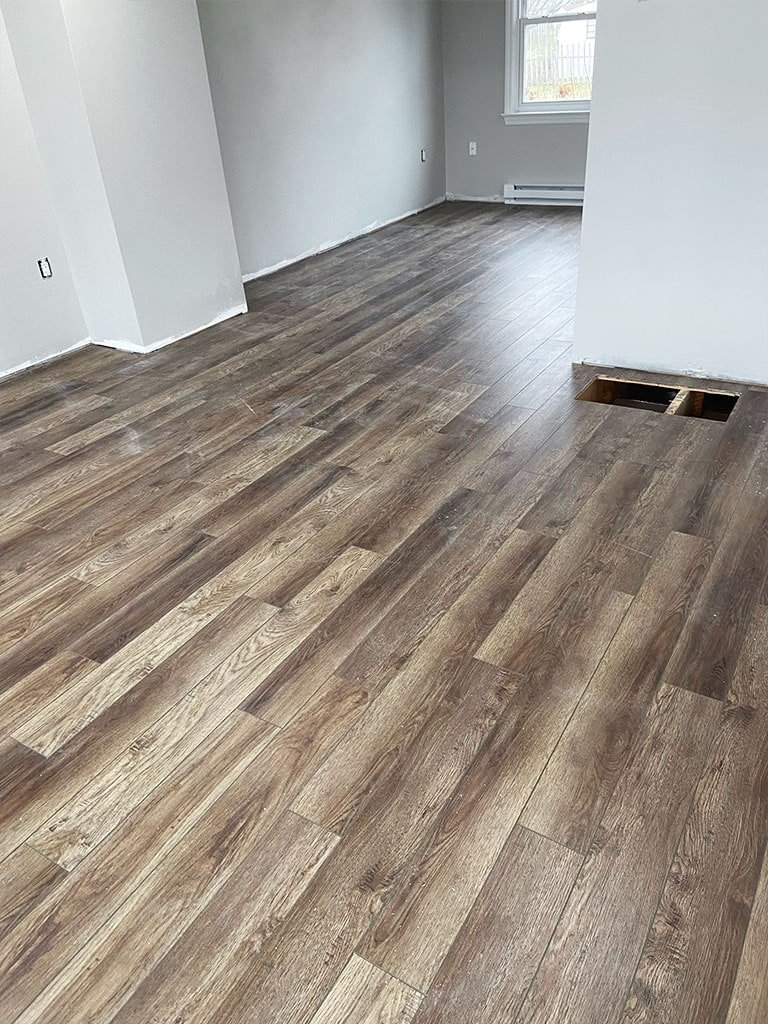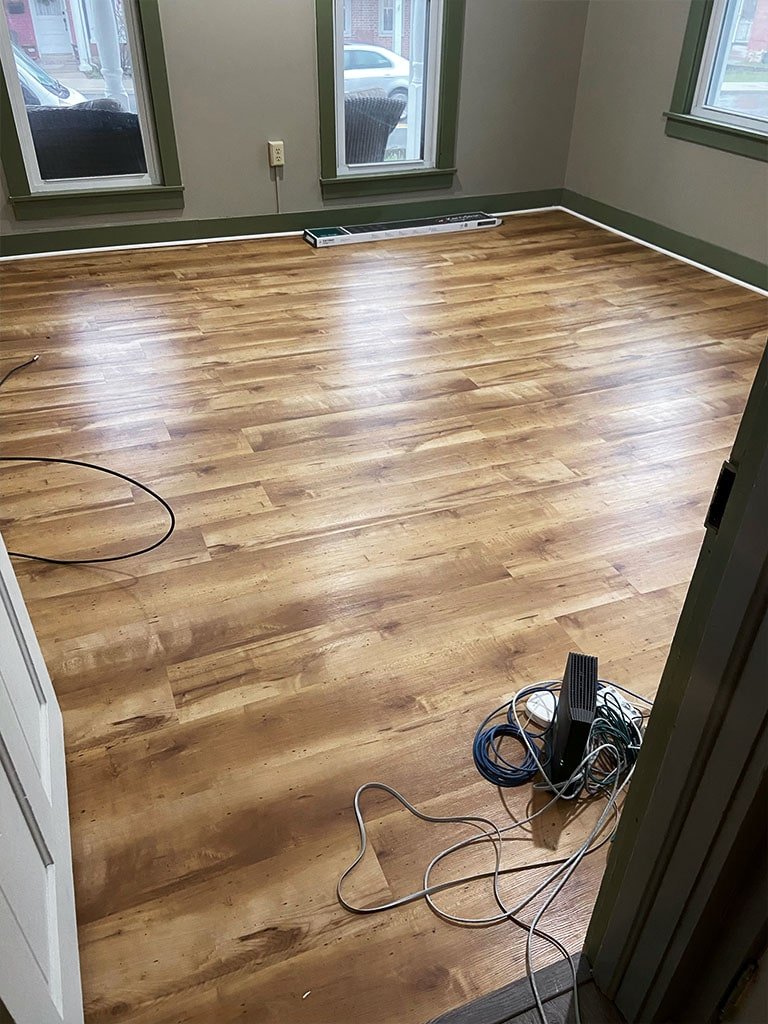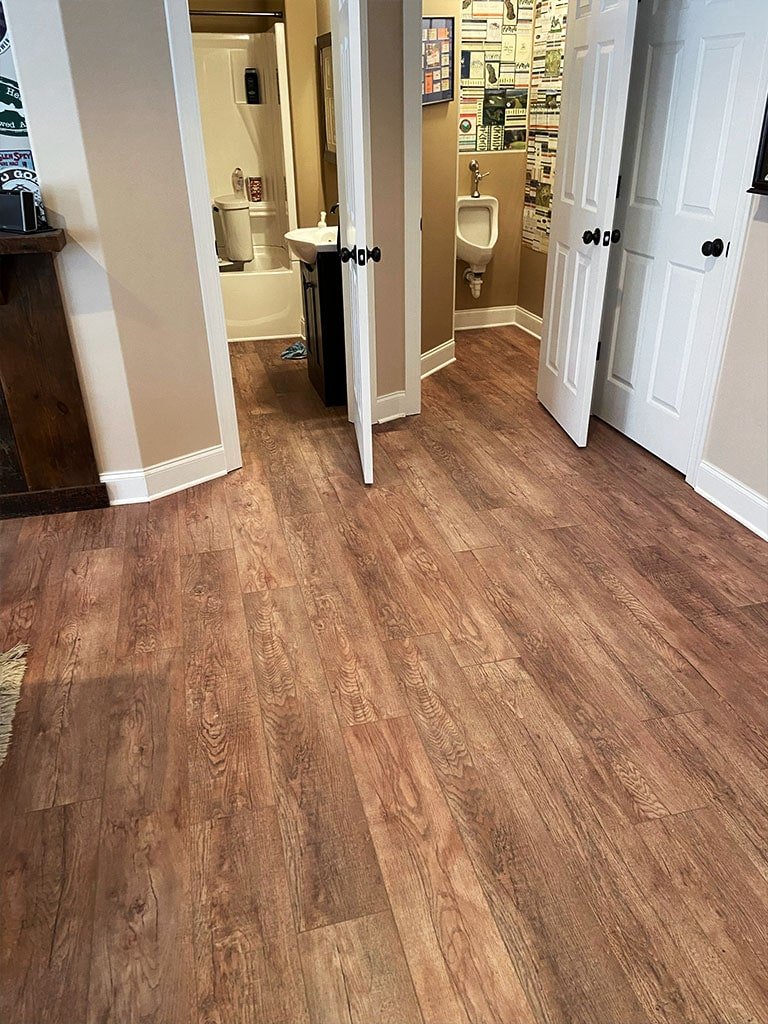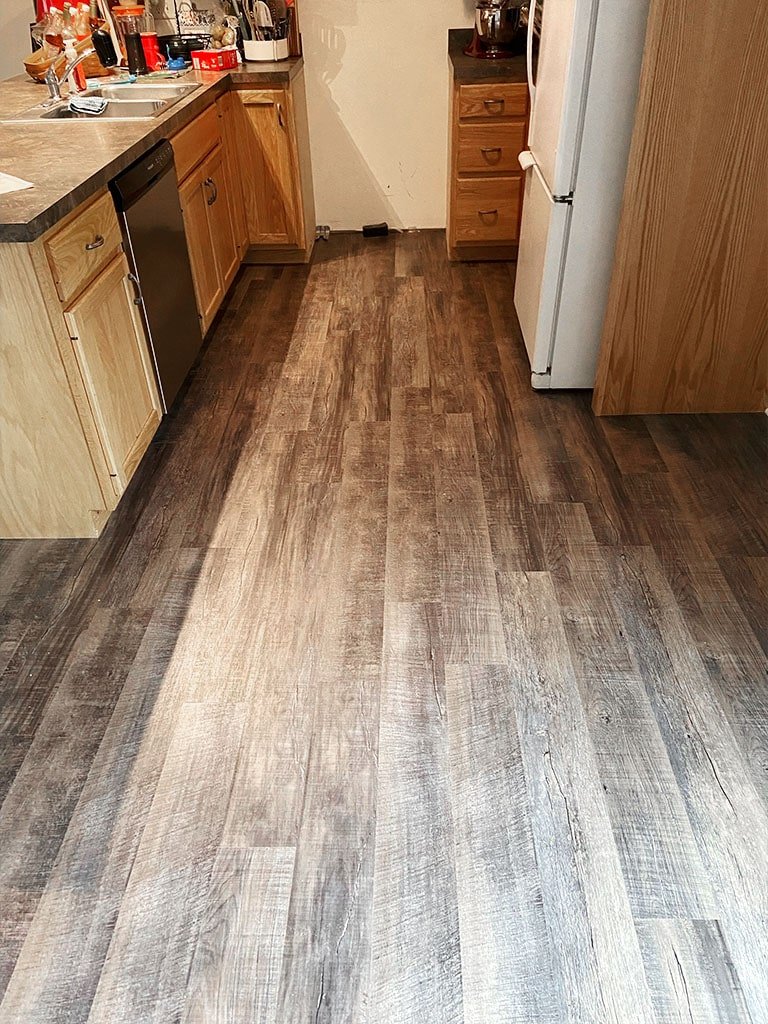SPC
/SPC
Wood-look SPC installed by D&S Flooring in 2022
Vinyl flooring is the most popular and fastest-growing hard surface flooring in the United States, and the biggest contributor to that growth is the innovative, “rigid core” sub-segment. Thanks to this latest introduction, vinyl is not only budget-friendly, waterproof, soft underfoot, and easy to maintain, it’s even more durable, dimensionally stable, and dent resistant.
SPC Vinyl
As we explain in our All About Vinyl article, rigid core or stone polymer composite or solid polymer core (SPC) is a luxury vinyl plank (LVP) or tile (LVT) with an engineered core. Like LVP, SPC has several layers: a finish layer, wear layer, print layer, and backing. In addition to these layers, it has a dense, engineered core typically comprised of 60% calcium carbonate (powdered limestone), polyvinyl chloride, and stabilizers. This dense core adds dimensional stability to the product, which means it reduces expansion and contraction with changes in temperature and humidity. As a thicker LVP product, SPC also absorbs and blocks more sound and is more dent-resistant.
Many SPC products also come with a click-together system for easy installation. It’s better at hiding subfloor imperfections (no telegraphing) than standard LVT and comes with all the attractive features of LVP: beveled edges, textured wear layers, and high-definition print designs for added realism whether you want a wood look or a tile look. As for price point, SPC costs between $3.50 and $7 per square foot.
With these practical improvements, visual appeal, and competitive price point, it’s no wonder rigid core/SPC flooring has been flying off the shelves. Here are the recent stats per Floor Covering news:
“...the rigid core subsegment of the resilient category is driving the overall growth [of resilient vinyl flooring sales]. FCNews research shows that rigid core/SPC garnered 45.6% of total resilient sales in 2021 and 34.8% of volume. That translates to $3.845 billion in sales and 2.047 billion square feet. Compare that to 2020 when rigid core/SPC checked in at $2.617 billion and 1.63 billion square feet. To put this in perspective, total LVT sales just six years ago were $1.45 billion. So, rigid core alone is nearly triple the entire LVT market in 2015.”
The Difference Between WPC and SPC
The second type of rigid core flooring is called wood plastic (polymer) composite (WPC). WPC is made with the same idea as SPC, only its engineered core is softer, thicker (taller), and less dense. The core is made up of wood pulp, plasticizers, and foaming agents. WPC resilient vinyl is still more resistant to indentation than traditional LVP or sheet vinyl while maintaining the soft feel customers have come to love about vinyl.
Our Offerings
The next time you’re in your local flooring retailer or here at D&S, be sure to give rigid core flooring, and specifically SPC flooring a good look! Here at our showroom, we carry and display the following SPC options from these companies:
Armstrong
Novafloor
Azul Tortuga
Chesapeake
Coretec Pro
Mannington
Karndean
Shaw Floors
Mohawk
We welcome walk-ins during our normal business hours Monday through Friday 7:00 a.m. to 5:00 p.m., Thursday until 8:00 p.m. and Saturday from 9:00 a.m. to 1:00 p.m. If you’d like to guarantee an available sales team member, then we’d recommend setting up an appointment ahead of time. You can do so by filling out the form below to connect with Josh or give us a call at (717) 553-2900.














